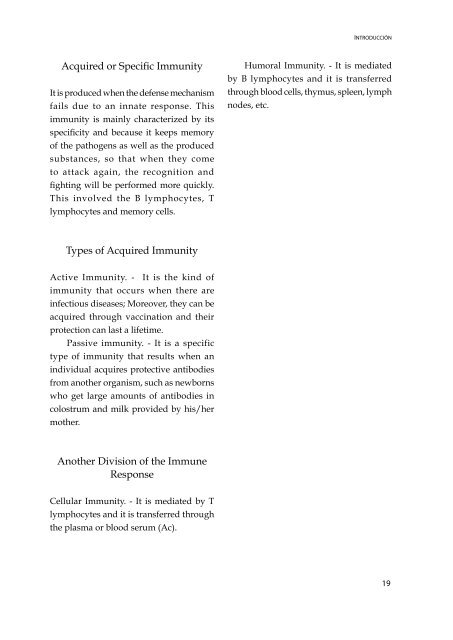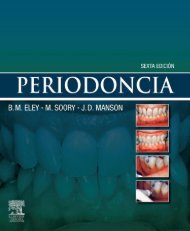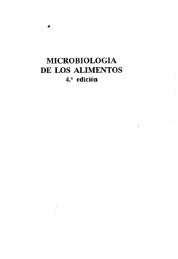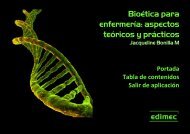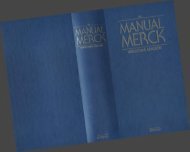- Page 3 and 4: Inmunología Básica y Clínica
- Page 5: Inmunología Básica y Clínica Ang
- Page 9: Agradecimiento Los autores expresam
- Page 12 and 13: Primera edición 2015 ISBN: 978-997
- Page 14 and 15: Enfermedades Neurológicas ........
- Page 16 and 17: Angel chu lee / silvana cuenca buel
- Page 21: Referencia Bibliográfica 1. Villen
- Page 25 and 26: Sistema Inmune contra las Infeccion
- Page 27 and 28: Sistema Inmune contra las Infeccion
- Page 29 and 30: Sistema Inmune contra las Infeccion
- Page 31: Referencia Bibliográfica 1. - Abba
- Page 34 and 35: Angel chu lee / silvana cuenca buel
- Page 36 and 37: Angel chu lee / silvana cuenca buel
- Page 38 and 39: Angel chu lee / silvana cuenca buel
- Page 41 and 42: Infecciones Virales “En este cap
- Page 43 and 44: Infecciones Virales Figura1.1. Resp
- Page 45 and 46: Infecciones Virales Es importante r
- Page 47 and 48: Infecciones Virales Varias cepas de
- Page 49: Referencia Bibliográfica 1.- Regue
- Page 52 and 53: Angel chu lee / silvana cuenca buel
- Page 54 and 55: Angel chu lee / silvana cuenca buel
- Page 56 and 57: Angel chu lee / silvana cuenca buel
- Page 58 and 59: Angel chu lee / silvana cuenca buel
- Page 61 and 62: Infecciones por Parásitos Objetivo
- Page 63 and 64: Infecciones por Parásitos La destr
- Page 65 and 66: Infecciones por Parásitos La respu
- Page 67 and 68: Infecciones por Parásitos Localiza
- Page 69 and 70:
Infecciones por Parásitos Toxoplas
- Page 71:
Referencia Bibliográfica 1.-Murray
- Page 74 and 75:
Angel chu lee / silvana cuenca buel
- Page 76 and 77:
Angel chu lee / silvana cuenca buel
- Page 78 and 79:
Angel chu lee / silvana cuenca buel
- Page 80 and 81:
Angel chu lee / silvana cuenca buel
- Page 83:
Referencia Bibliográfica 1.- Regue
- Page 86 and 87:
Angel chu lee / silvana cuenca buel
- Page 88 and 89:
Angel chu lee / silvana cuenca buel
- Page 91:
Referencia Bibliográfica 1.- Rojas
- Page 95 and 96:
Mecanismos de la Inmunología del T
- Page 97 and 98:
Cáncer e Inmunidad anteriores, los
- Page 99 and 100:
Cáncer e Inmunidad Al menos alguno
- Page 101 and 102:
Cáncer e Inmunidad Mecanismos de e
- Page 103 and 104:
Cáncer e Inmunidad Hay varios tipo
- Page 105 and 106:
Cáncer e Inmunidad • Mediante va
- Page 107:
Referencia Bibliográfica 1. Rojas.
- Page 111 and 112:
Primarias (Congénitas) Secundarias
- Page 113 and 114:
Deficit de Inmunidad Inmunodeficien
- Page 115 and 116:
Deficit de Inmunidad Inmunodeficien
- Page 117 and 118:
Deficit de Inmunidad Inmunodeficien
- Page 119 and 120:
Deficit de Inmunidad Inmunodeficien
- Page 121 and 122:
Deficit de Inmunidad Inmunodeficien
- Page 123 and 124:
Deficit de Inmunidad Inmunodeficien
- Page 125:
Deficit de Inmunidad Inmunodeficien
- Page 129:
Exceso de Inmunidad (Alergia)
- Page 132 and 133:
Angel chu lee / silvana cuenca buel
- Page 134 and 135:
Angel chu lee / silvana cuenca buel
- Page 136 and 137:
Angel chu lee / silvana cuenca buel
- Page 138 and 139:
Angel chu lee / silvana cuenca buel
- Page 140 and 141:
Angel chu lee / silvana cuenca buel
- Page 142 and 143:
Angel chu lee / silvana cuenca buel
- Page 145:
Referencia Bibliográfica 1. Rojas.
- Page 149 and 150:
Enfermedades Reumáticas Las enferm
- Page 151 and 152:
Enfermedades Reumáticas Proceso in
- Page 153 and 154:
Enfermedades Reumáticas brotes o e
- Page 155 and 156:
Enfermedades Reumáticas Embarazo y
- Page 157:
Referencia Bibliográfica 1.- Rojas
- Page 160 and 161:
Angel chu lee / silvana cuenca buel
- Page 162 and 163:
Angel chu lee / silvana cuenca buel
- Page 165:
Referencia Bibliográfica Sistema I
- Page 168 and 169:
Angel chu lee / silvana cuenca buel
- Page 170 and 171:
Angel chu lee / silvana cuenca buel
- Page 173:
Referencia Bibliográfica 1.- Rojas
- Page 176 and 177:
Angel chu lee / silvana cuenca buel
- Page 178 and 179:
Angel chu lee / silvana cuenca buel
- Page 180 and 181:
Angel chu lee / silvana cuenca buel
- Page 182 and 183:
Angel chu lee / silvana cuenca buel
- Page 185:
Referencia Bibliográfica 1. - Fain
- Page 188 and 189:
Angel chu lee / silvana cuenca buel
- Page 190 and 191:
Angel chu lee / silvana cuenca buel
- Page 193:
Referencia Bibliográfica 1.- Regue
- Page 196 and 197:
Angel chu lee / silvana cuenca buel
- Page 198 and 199:
Angel chu lee / silvana cuenca buel
- Page 200 and 201:
Angel chu lee / silvana cuenca buel
- Page 202 and 203:
Angel chu lee / silvana cuenca buel
- Page 205:
Referencia Bibliográfica 1.- Regue
- Page 208 and 209:
Angel chu lee / silvana cuenca buel
- Page 210 and 211:
Angel chu lee / silvana cuenca buel
- Page 213:
Referencia Bibliográfica Sistema I
- Page 216 and 217:
Angel chu lee / silvana cuenca buel
- Page 218 and 219:
Angel chu lee / silvana cuenca buel
- Page 221 and 222:
Enfermedades Musculares En el prese
- Page 223 and 224:
Enfermedades Musculares Compromiso
- Page 225 and 226:
Enfermedades Musculares Taller 1. Q
- Page 227:
Referencia Bibliográfica Sistema I
- Page 230 and 231:
Angel chu lee / silvana cuenca buel
- Page 232 and 233:
Angel chu lee / silvana cuenca buel
- Page 234 and 235:
Angel chu lee / silvana cuenca buel
- Page 237 and 238:
Enfermedades Oftalmológicas En el
- Page 239 and 240:
Enfermedades Oculares de la localiz
- Page 241:
Enfermedades Oculares 4. Escriba el
- Page 245 and 246:
Poliautoinmunidad En el presente ca
- Page 247 and 248:
Poliautoinmunidad D e l m o s a i c
- Page 249 and 250:
Poliautoinmunidad Esta condición s
- Page 251:
Referencia Bibliográfica 1.- Regue
- Page 255 and 256:
Inmunomodulación En este capitulo
- Page 257 and 258:
Inmunomodulación emplea en traspla
- Page 259 and 260:
Inmunomodulación Ipilimumab: antic
- Page 261:
Referencia Bibliográfica 1.- Regue
- Page 264 and 265:
Angel chu lee / silvana cuenca buel
- Page 266 and 267:
Angel chu lee / silvana cuenca buel
- Page 268 and 269:
Angel chu lee / silvana cuenca buel
- Page 271 and 272:
Desensibilización a Alergias Esto
- Page 273:
Desensibilización a alergias Talle
- Page 277 and 278:
Transplantes e Injertos En este cap
- Page 279 and 280:
Transplantes e Injertos Inmunologia
- Page 281 and 282:
Transplantes e Injertos que las tra
- Page 283 and 284:
Transplantes e Injertos Rechazo agu
- Page 285:
Referencia Bibliográfica 1.- Regue
- Page 288 and 289:
Angel chu lee / silvana cuenca buel
- Page 291:
Misceláneas Acupuntura China e Inm
- Page 294 and 295:
Angel chu lee / silvana cuenca buel
- Page 296 and 297:
Angel chu lee / silvana cuenca buel
- Page 299:
Misceláneas Inmunologia en Gineco
- Page 302 and 303:
Angel chu lee / silvana cuenca buel
- Page 304 and 305:
Angel chu lee / silvana cuenca buel
- Page 307:
Referencia Bibliográfica 1.- Armen
- Page 310 and 311:
Angel chu lee / silvana cuenca buel
- Page 312 and 313:
Angel chu lee / silvana cuenca buel
- Page 314 and 315:
Angel chu lee / silvana cuenca buel
- Page 316 and 317:
Angel chu lee / silvana cuenca buel
- Page 318 and 319:
Angel chu lee / silvana cuenca buel
- Page 320 and 321:
Angel chu lee / silvana cuenca buel
- Page 322 and 323:
Angel chu lee / silvana cuenca buel
- Page 325 and 326:
Biografía Dr. Angel Jose Chu Lee,
- Page 327:
Inmunologia Basica y Clinica Se ter


